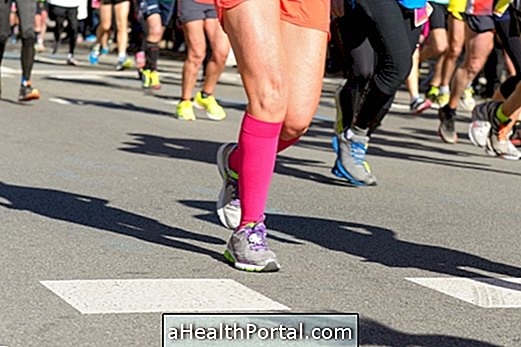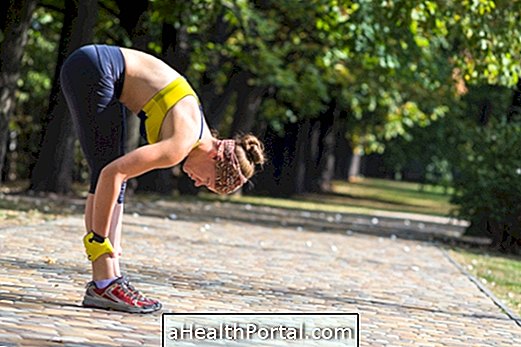Walking is a physical activity indicated by cardiologists to lose weight and maintain heart and mind health, decreasing anxiety and stress, for example.
The benefits of daily walking are very varied and may include:
- Reduction of swelling in the legs and ankles;
- Prevention of obesity and helps to lose weight;
- Improvement of blood circulation;
- Strengthening of all muscles of the body;
- Improvement of body posture;
- Improvement of anxiety and stress;
- Relaxation of the muscles of the neck and shoulders;
- Prevention of cardiovascular complications, such as heart attacks and hypertension.
These benefits happen when the individual walks at least two and a half hours a week and has other healthy habits, such as eating fresh, low-calorie foods.
Benefits of walking in pregnancy
The benefits of walking in pregnancy are:
- Reduction of swollen feet at the end of the day;
- It improves the sleep of the pregnant woman;
- Helps to relax;
- Avoid gaining excess weight;
- It reduces the risk of pre-eclampsia and gestational diabetes.
Other exercises, such as swimming or practicing yoga, may also have the same benefits of walking in pregnancy. However, the pregnant woman should consult the obstetrician before undertaking physical exercise.
Weight-Loss Tips
This activity can be done at any age and anywhere, whether at the gym, at the beach or on the street, and for healthy walking and burning calories, it is important to:
- Walk fast, so that breathing is quick and easy to talk;
- Contract the belly muscles in order to maintain a correct posture;
- Swing your arms vigorously while walking as it improves blood circulation.


If done daily, the walk slims and helps to lose belly, being able to burn up to 400 calories per hour and approximately 2.5 cm of belly per month. In addition, when done in a quiet location and with good scenery can be a great treatment to control stress.
Is it good to walk fast?
Fasting walking is not a health benefit, as it can lead to dizziness, nausea and fainting as the individual may not have enough blood sugar to walk.
So the ideal is to eat a light meal with carbohydrates and fruit such as cereal bread and fruit juice, for example, before exercising, avoiding too bulky meals so you do not feel uncomfortable.
Important care during walking
Walking care includes:
- Wear comfortable shoes and light clothing;
- Drink 250 ml of water per hour of walking;
- Use sunscreen, sunglasses and hat or cap;
- Avoid hotter hours, such as between 11am and 2pm and busy streets;
- Do stretching exercises before and after walking, such as lengthening legs and arms, to activate circulation and prevent cramps. Learn which exercises to do in: Stretching exercises for walking.
This walking care helps prevent health problems such as injury, dehydration, sunstroke or sunburn.























